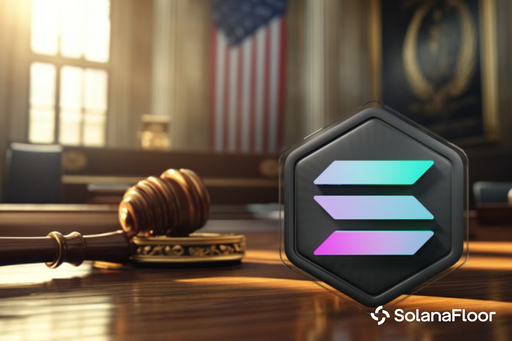
2025年5月29日,美国证券交易委员会(SEC)发布了一份 声明,澄清了其对在权益证明(PoS)区块链网络中的某些押注活动的立场。美国证券交易委员会公司金融部就此类活动何时不构成联邦证券法规定的证券交易提供了指导。
该部门已澄清,根据现行证券法,该部门不认为押注涉及证券要约和销售。因此,参与者在参与某些与在权益证明网络上为加密资产设注相关的活动之前,无需向美国证券交易委员会注册。
加密货币社区对这一期待已久的澄清反应良好,并将其视为去中心化和数字资产监管的重大胜利。
本声明涵盖哪些活动?
分部的立场适用于特定类型的押注活动和交易。其中包括:
在权益证明 (PoS) 网络上抵押受保护的加密资产
。由第三方参与者(如节点操作员、验证器、托管人、代理人和提名人(“服务提供商”))在定价过程中执行的操作,尤其是有关赚取和分配奖励的操作
提供相关的支持服务,包括提供削减覆盖范围、允许在协议解除锁定期结束前将加密资产归还给认购者等
豪威测试”
。在《证券法》和《交易法》中,“证券”一词的定义是提供一个金融工具列表,包括“股票”和“债券”。该列表中并未明确提及加密资产,因此委员会将根据 "SEC 诉 W.J. Howey Co.’案(又称 "Howey 测试")中概述的“投资合同”测试来分析某些押注交易。
豪威测试用于评估未明确定义为证券的安排或工具,重点在于其背后的经济现实。它用于确定一项工具是否符合投资合同的条件。
美国证券交易委员会内部的不同观点
公司金融部的声明引起了美国证券交易委员会委员海丝特-M-皮尔斯和Caroline A. Crenshaw的不同回应,反映出他们对加密货币押注监管处理的不同看法。委员 Peirce 对该司的声明表示欢迎,认为这是朝着明确权益证明 (PoS) 网络参与者的监管迈出的积极一步。她强调,该指导意见将缓解阻碍美国人参与押注的不确定性,从而支持去中心化和区块链网络的完整性。
与此相反,Crenshaw 委员对该部门的声明与既定法律原则相冲突表示担忧,特别是 Howey 测试,该测试决定了什么是投资合同。她指出,美国证券交易委员会以前曾声称,某些证券即服务计划符合投资合同的条件,法院也支持这种说法。Crenshaw 警告说,新指南可能会在证券法是否适用于押注活动的问题上产生歧义,从而削弱对投资者的保护。她强调有必要统一适用法律标准,以确保投资者得到充分保护。
这将如何影响 ETF 托管申请
?在安大略省证券委员会批准多达四家加拿大公司之后,加拿大最近推出了首批现货SOL ETF。这些 ETF 纳入了认股权证,并在第一周获得了 1.2 亿加元的资金流入。它们的首次亮相自然引发了类似的 ETF 何时会在美国推出的问题。
上周, Canary Capital提交了美国首只 Solana Staking ETF,并指定Marinade Finance为其独家注资合作伙伴。美国证券交易委员会(SEC)澄清原生协议定价本质上不是证券交易,这为 Canary Capital 的 Solana Staking ETF 提供了坚实的监管基础,加强了其获得批准的可能性。
众多 X 用户对美国证券交易委员会的这一澄清表示肯定。前福克斯商业记者埃莉诺-特雷特(Eleanor Terrett)强调了这一声明对于希望提供赌注的 ETF 提供商来说是一件大事。
Jito Labs 的首席法务官 Rebecca Rettig 证实,SEC 的声明事实上允许 ETF 包含赌注。
“This bodes very well for other types of non-custodial staking activity, including liquid staking”,她说。
毫无疑问,ETF 提供商可以松一口气了,因为在他们将认购纳入其产品的道路上,一个重要的监管障碍似乎已经消除。
对加密货币行业的影响
这一澄清为权益证明(PoS)网络的参与者提供了一个更加明确的监管框架,在去中心化的盯盘活动和涉及中介的盯盘活动之间划清了界限。美国证券交易委员会概述了什么是证券交易中的盯盘,旨在支持加密货币生态系统中的合规性和持续创新。鉴于这一澄清,随着决定截止日期的临近,其他 ETF 发行商可能会更新他们的申报文件,以纳入盯盘。这一发展可能会为更多与盯盘相关的产品在更清晰的监管框架下进入市场打开大门。
了解有关 SolanaFloor 的更多信息
SolanaFoundation、Jupiter、AIX和Intebix签署了IPO双上市谅解备忘录您知道什么是盯盘吗?


